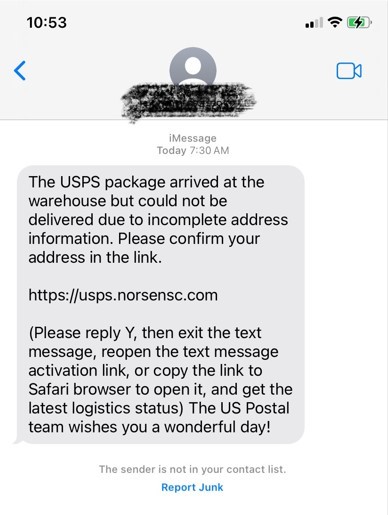Fake Delivery Notifications:
You might receive a notification on your phone about a "missed delivery" with a phone number to call or a website to visit to re-schedule.
Beware of Package Tracking Message Scams:
Protecting Yourself in the E-commerce Age
The convenience of online shopping has become a staple in our lives, especially during the pandemic and holiday seasons. However, scammers are taking advantage of it by sending out fake shipping notification and phishing texts and emails that claim some delivery information is wrong to trick victims compromising their personal information or downloading malware. This article will unravel the tactics used by scammers and advise you the tips to stay safe.


Package scams often arrive through:
Phishing Emails or Text Messages:
These messages appear to be from legitimate delivery companies like UPS, FedEx, or USPS. They typically claim there's an issue with your delivery, requiring you to click a link to reschedule or pay a fee.
Fake Delivery Notifications:
You might receive a notification on your phone about a "missed delivery" with a phone number to call or a website to visit to re-schedule.
Be Cautious of:
The Theft of credential:
The link in emails or messages might lead to a spoofed website that looks identical to the real delivery company's website and ask you to enter your login credentials. Once you enter, your passowrd or important personal information are stolen by the scammer.
Download Malware (Malicious software):
The link in emails or messages might direct you to download malwares onto your device. This malware can steal your personal information, track your online activity, or even hold your device hostage for ransom.
Payment Scams:
The link in emails or messages might take you to a page where you're asked to pay a fake delivery fee or customs charge.